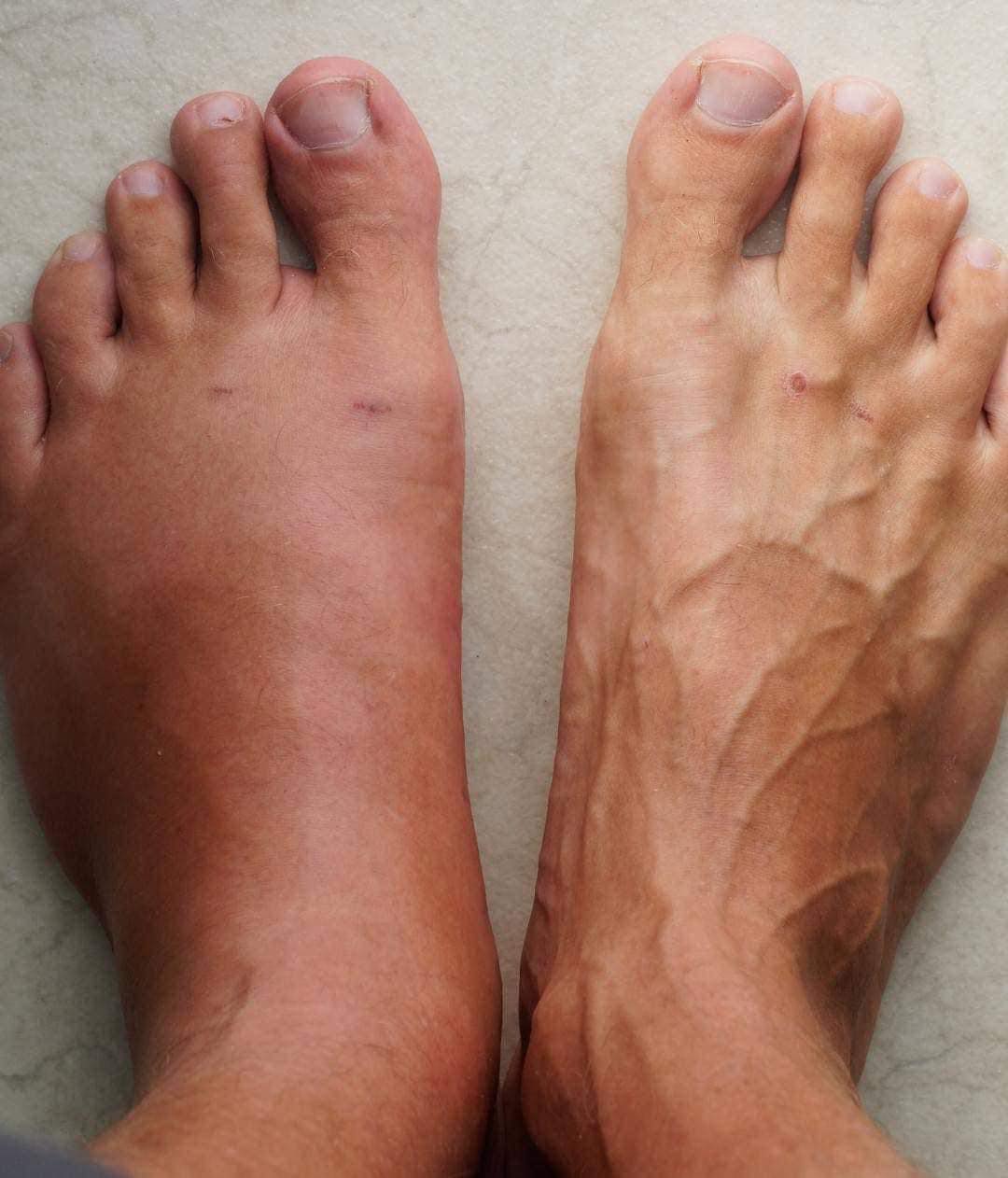Did you know that heart attacks remain the leading cause of death in the United States? This alarming reality highlights the importance of understanding the warning signs and risk factors associated with this serious condition. Over the past few decades, the fast-paced lifestyle many Americans lead, coupled with unhealthy eating habits, has significantly contributed to the increase in heart-related illnesses. Recognizing the symptoms of heart failure as early as a month in advance can be incredibly helpful—even life-saving. Along with adopting a healthy lifestyle and managing stress levels, knowing the warning signs can help you take the necessary precautions to protect yourself and your loved ones.

It’s essential to pay attention to subtle changes in your body because they could signal an impending heart attack. The following symptoms should not be ignored. If you or someone you know is experiencing any of these warning signs, seek medical attention immediately.
Swelling in the Feet, Ankles, and Legs
Swelling in the lower extremities is one of the most common early indicators of heart failure. When the heart’s lower chambers, known as the ventricles, lose their ability to pump blood efficiently, blood can back up in your veins and accumulate in certain parts of the body. This buildup often causes swelling, medically referred to as edema, in the feet, ankles, and legs. While occasional swelling could be due to other factors such as prolonged standing or sitting, persistent or worsening swelling may be a sign of congestive heart failure and warrants a medical evaluation.
Extreme Fatigue
If you’ve been feeling unusually tired or drowsy without any clear explanation, it could be a sign that your heart is under strain. Narrowing of the arteries reduces the amount of blood flow to the heart, forcing it to work harder to circulate blood throughout your body. This additional workload can leave you feeling chronically fatigued, even after a full night’s rest or minimal physical activity. Extreme fatigue that persists for days or weeks should not be ignored, as it is often a key indicator of a heart problem.
Shortness of Breath
Shortness of breath, also known as dyspnea, is another symptom that can occur when the heart struggles to pump blood efficiently. When the heart is unable to circulate blood properly, the lungs may not receive adequate oxygen, leading to difficulty breathing. You might notice shortness of breath during physical activity, at rest, or while lying flat. If you find yourself struggling to catch your breath, it’s important to take this symptom seriously and seek medical attention immediately, as it could indicate an impending heart attack.
Unexplained Weakness
A sudden feeling of weakness or lethargy can also point to a heart issue. When blood flow is restricted due to narrowed arteries, your muscles may not receive the oxygen and nutrients they need to function properly. This can lead to a feeling of overall weakness, lack of energy, or even unexpected falls. If you find yourself feeling weaker than usual or struggling with tasks that once felt effortless, it’s crucial to listen to your body and consult a doctor.
Dizziness and Cold Sweats
Poor circulation caused by a weakened heart can also affect blood flow to the brain, which is a dangerous and life-threatening situation. In the early stages, this may manifest as sudden dizziness, lightheadedness, or clammy, cold sweats. You might experience a faint feeling or episodes of disorientation, which can be frightening and disconcerting. Do not dismiss these symptoms, as they could indicate that your heart is not functioning as it should.
Chest Discomfort or Pressure
Discomfort, pressure, or a squeezing sensation in the chest is one of the most well-known warning signs of a heart attack. Many people describe this feeling as tightness, heaviness, or burning in the center or left side of the chest. While the discomfort may initially feel mild, it often intensifies over time and can radiate to the arms, shoulders, neck, jaw, or back. If you are experiencing chest pressure or discomfort, even if it comes and goes, it is critical to seek medical help as soon as possible.
Flu-like Symptoms
Some individuals experience flu-like symptoms in the days or weeks leading up to a heart attack. These can include nausea, chills, body aches, and general malaise. It is easy to mistake these early symptoms for a common cold or seasonal flu. However, if you develop flu-like symptoms alongside other warning signs such as fatigue, shortness of breath, or chest discomfort, it’s important to consider the possibility of a heart issue and consult a healthcare professional.
What Should You Do?
If you or someone you know is showing any of the above symptoms, do not ignore them. Early detection is key to preventing a heart attack and ensuring a better outcome. Here are the steps you can take to protect your health:
- Seek Medical Attention Promptly: If you experience any of these warning signs, contact your doctor or seek emergency care immediately. Time is critical when it comes to heart-related issues.
- Monitor Your Symptoms: Keep track of when symptoms occur, their severity, and any patterns you notice. This information can help healthcare providers make an accurate diagnosis.
- Adopt a Heart-Healthy Lifestyle: While genetics can play a role, many heart attacks are preventable. Focus on eating a balanced diet rich in fruits, vegetables, whole grains, and lean proteins. Reduce your intake of saturated fats, processed foods, and added sugars.
- Exercise Regularly: Physical activity strengthens the heart and improves blood circulation. Aim for at least 30 minutes of moderate exercise most days of the week, such as walking, swimming, or cycling.
- Manage Stress Levels: Chronic stress can have a negative impact on your heart. Practice stress-reducing techniques such as mindfulness, yoga, or deep breathing exercises.
- Stop Smoking: Smoking significantly increases your risk of heart disease. If you are a smoker, consider seeking support to quit.
- Schedule Regular Checkups: Regular health screenings can help identify risk factors such as high blood pressure, high cholesterol, or diabetes before they become more serious.
Final Thoughts
Heart attacks are a serious health concern, but with the right knowledge and proactive measures, you can significantly reduce your risk. Paying attention to your body and recognizing the early symptoms of heart failure can make a life-saving difference. If you notice any of the warning signs—swelling, fatigue, shortness of breath, weakness, dizziness, chest discomfort, or flu-like symptoms—take action immediately. Don’t wait until it’s too late. By prioritizing your heart health and making positive lifestyle changes, you can protect yourself and those you care about from this silent killer.





